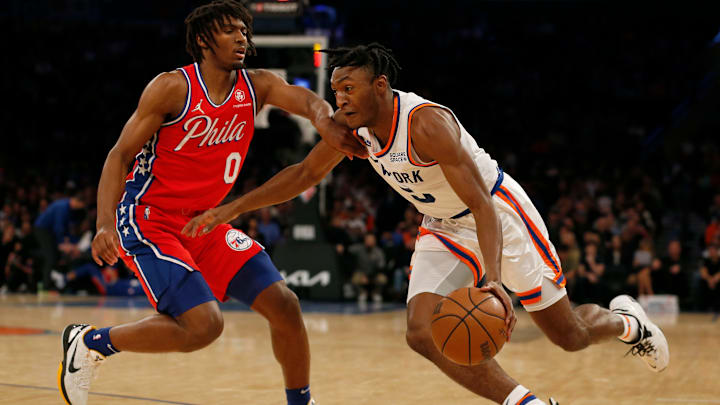6. Isaac Okoro, Cleveland Cavaliers
Isaac Okoro is a superb example of why 3-point efficiency isn’t always the best proxy for 3-point shooting talent. As an excellent defensive wing, coming off a season where he hit 36.3 percent of his 3s, Okoro sounds like one of the best young 3-and-D wings in the league. Unfortunately, his 3-point shooting volume and difficulty reveal massive offensive limitations.
Per NBA tracking stats, 2.1 of his 2.3 3-point attempts per game were classified as wide-open (a defender is at least six feet away). Converting 36 percent of your wide-open 3s sounds good, but the league converted them at a 38.7 percent clip last season, and when 91.3 percent of your 3-point attempts are wide-open, that means you’re not actually spacing the floor. With the Cavaliers’ roster construction built around two All-Star guards and two mobile All-Defense centers, they need their wings to attract some defensive attention.
Okoro’s defense is legitimately a plus, but defensive specialists have become a dying breed in the NBA. For him to remain in the Cavaliers’ long-term plans, he needs to make defenses guard him beyond the arc. The best way to do that is to fire from deep with more frequency because the Cavaliers’ stars can handle creating efficient offense. They just need the space to do it.
A market for Okoro will always exist because of his defense, but the difference between signing a $40 million contract and an $80 million contract could be as small as taking three more 3s per game. Okoro has improved from distance each season, and a breakout beyond the arc could come back to bite the Cavaliers financially. He’s a solid player who’s close to becoming a genuinely good one. If his bet on himself pays off, he’ll end his career with tens of millions of dollars more than if he took the safe money, and that might mean he ends up out of Cleveland.
